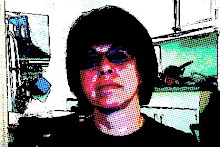Wednesday, February 23, 2005
1964
"That was the last innocent year."
"That was really the beginning of the Sixties."
So the next day, I'm browsing in the History aisle of the library and what do I see? "The Last Innocent Year: America in 1964 : The Beginning of the 'Sixties' " by Jon Margolis. Tonight, remind me to talk about finding a million dollars.
I'm about halfway through this book, and it's like looking at an ultrasound for the way things are now. The narrative goes chronologically from the day after JFK's assassination to the 1964 Presidential Election, and along the way it encompasses the rise of both the New Left and the modern Conservative movement behind Barry Goldwater's candidacy, the repercussions of the Civil Rights Act (which was originally going to include bias against gender as well as race), the emergence of an anti-war movement to protest our participation in a war of "questionable necessity," the creation of BASIC programming language, and milestones in sports, culture and entertainment, including, yes, the Beatles.
There is even a foreshadowing of "Red State and Blue State America," although this book was published in 1999 and this term would not be coined for another year. It's here in this analysis of a New York Times Magazine article from the end of 1963 entitled, "What Sort of Nation Are We?":
Not a bad one, came the answer. "We are, first and foremost, a democracy," the article said, but a special kind of democracy. Noting that popular majorities no doubt opposed many of the country's political institutions--free speech, the presumption of innocense--the article concluded, without using the offending word, that this was something of an elitist democracy, in which only a select minority held liberal values.
Or at least the ideal democracy your teachers held up to you in Civics Class or during "Brotherhood Week." ("I want to live in a friendly world, A friendly world, A friendly world...")
Instead, American democracy was "a social rather than a political phenomenon," based on the fact that more Americans "have been able to ascend to a level of material security and a consciousness of personal worth" than the people of other lands, to such an extent that "social classes play...a small role in our national life."
Even members of racial minorities could attain this wealth and consciousness, the article said, for the real division of the country was based on neither race not class; it was...well, it wasn't education, exactly. It was more like degrees of enlightenment, or what would later be called "lifestyle."
The division was between a "provincial America," mired in the past but well represented in Congress and in local government,
Both the liberals the the conservatives could make this statement now: The liberals are stuck in the Seventies in many ways, and the conservatives want to roll back the clock to at least before the New Deal.
and in the future-oriented "metropolitan America," whose voice was heard in the big corporations, the universities, the new suburban developments, the communications industry, and the presidency.
So broad was the Vital Center--just before it split apart more and more into opposite poles--that big corporations and the "cultural elite" could be spoken of under the same umbrella.
What distinguished these two Americas, said the author, was "our [there was no doubt as to which side he was on] commitment to a democratic society and to technological innovation." Nor was there much doubt that "we" would prevail. After all, suburbia, the corporate economy, and the power of the presidency could only grow, and as more people got college educations, there would be more of "us," fewer of "them."
So not to worry. The Dallas fourth graders who cheered the assassination were remnants of the fading "provincial America." The murders in Dallas were "unpredictable and unpreventable." To be sure, America has its problems, the article said, but "our problems are those of success."
I was in fourth grade in the Bronx when JFK was assassinated (see "Brunobaby, the Prenatal Years.") The shock in the classroom when the principal made the announcement over the PA reverberated in my nightmares for the next two years. If someone had told us that a classroom of kids like us had cheered the news, we would have thought that class was in Russia or Cuba.
Yet, we wouldn't have been surprised to hear it was in our own Southwest. Anyone of us who could turn on a television knew that everyone below the Mason-Dixon Line was a hillbilly, a moron or a bigot, despite the fact that we could find their counterparts without leaving the New York Tri-State Area.
And "they," in turn, thought we were the Commies, for wanting "our" Godless government to force a change in their deeply traditional, deeply entrenched social and economic order, without regard for the consequences that such necessary changes might leave in their wake.
Our parents read the Daily News and the Journal-American, but for those of us whose ambitions went beyond the neighborhood, there was no doubt that we aspired to be the ubiquitous "we" of the Times article. In that last innocent year, we were little world-beaters waiting to happen.
Meanwhile, Red America lay in wait.
